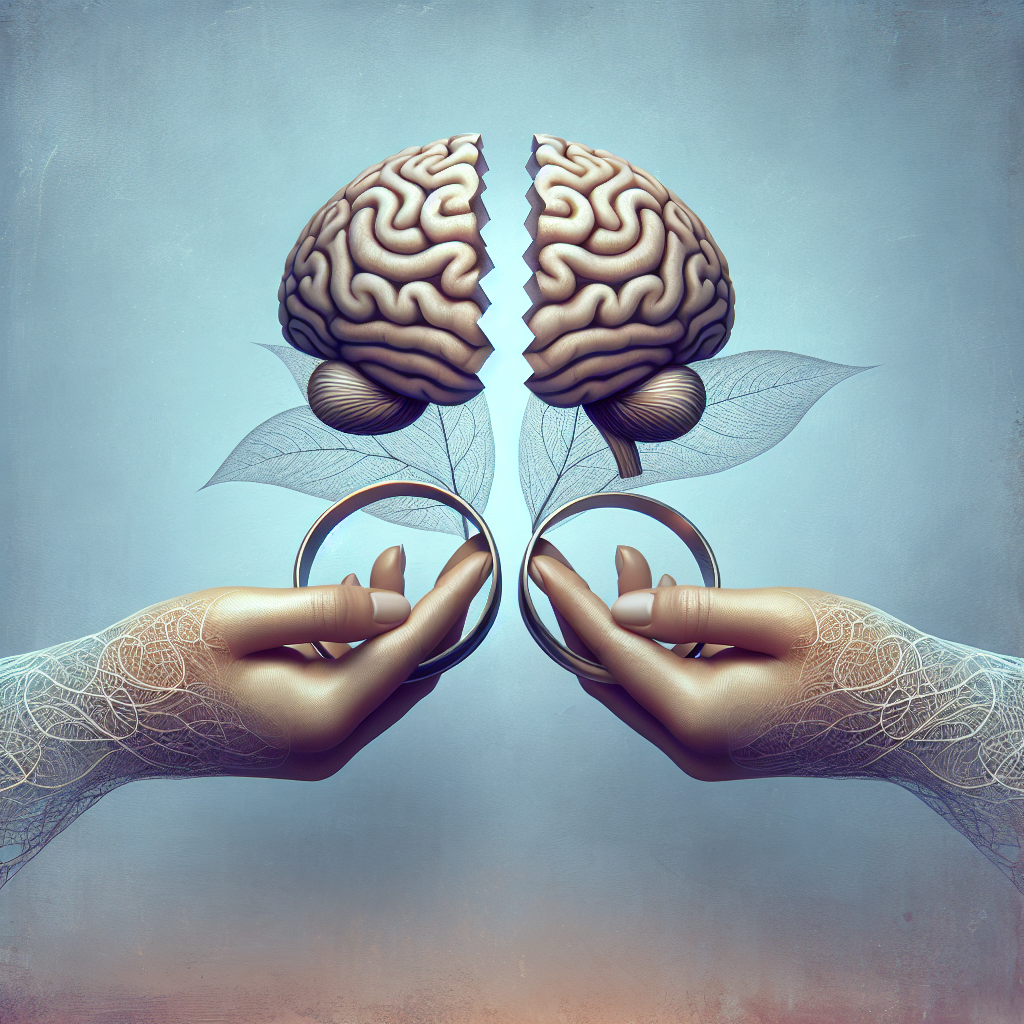The Impact of Divorce on Mental Health

Divorce & Mental Health: Navigating the Impact
Introduction
Divorce is a complex and emotionally challenging process that can have a significant impact on one’s mental health. It involves the dissolution of a marriage and often brings about major life changes that can be overwhelming and stressful. The link between divorce and mental health has been widely studied, and it is important to understand the potential effects and ways to cope during and after the process.
Understanding the Link between Divorce and Mental Health
Divorce can lead to a range of emotional and psychological challenges, as it involves the loss of a significant relationship and the upheaval of one’s life. The sudden change in family dynamics and the uncertainty of the future can trigger various reactions and emotions, such as grief, anger, anxiety, and depression. These emotional responses can impact one’s mental health, leading to behavioral changes and affecting overall well-being.
Positive and Negative Effects of Divorce on Mental Health
While divorce can undoubtedly bring about negative effects on one’s mental health, it can also have positive outcomes in certain situations. For instance, for individuals experiencing a high-conflict marriage, divorce can be a relief and lead to a decrease in stress and anxiety levels. It can also provide an opportunity for personal growth and development.
However, divorce can also have detrimental effects on mental health, especially in cases where it is unexpected or unwanted. The feelings of abandonment, rejection, and failure can take a toll on one’s self-esteem and confidence. The prolonged stress and uncertainty during the divorce process can also lead to symptoms of depression and anxiety.
Coping Strategies for Mental Health During and After Divorce
Dealing with the emotional and psychological impact of divorce can be overwhelming, but there are strategies that can help individuals cope and maintain their mental well-being during and after the process. Some helpful coping mechanisms may include seeking support from friends and family, engaging in self-care activities, practicing mindfulness and relaxation techniques, and seeking professional help when needed.
Seeking Professional Help for Divorce-Related Mental Health Issues
Divorce can bring about complex emotions and challenges that may require professional help to navigate. Therapists and counselors can provide a safe and non-judgmental space for individuals to process their feelings and develop coping strategies. They can also help individuals identify and address any underlying mental health issues that may have been exacerbated by the divorce.
Co-Parenting and Its Impact on Mental Health After Divorce
For couples with children, co-parenting is a necessary aspect of post-divorce life. While co-parenting can have its challenges, it is crucial to prioritize the well-being of the children and maintain a positive co-parenting relationship for their sake. Support from a therapist or mediator may be beneficial for co-parents to navigate this new dynamic and manage any conflicts that may arise.
Navigating the Emotional Rollercoaster of Divorce: Tips and Advice
The divorce process can feel like an emotional rollercoaster, with highs and lows, and it is essential to find healthy ways to manage these emotions. Some tips and advice for navigating the emotional ups and downs of divorce may include setting boundaries, finding healthy outlets for emotions, and seeking support from loved ones and professionals.
Financial Impact of Divorce on Mental Health: How to Manage
The financial implications of divorce can also have a significant impact on one’s mental health. The loss of a partner’s income, financial stability, and the cost of the divorce process can add stress and anxiety to an already challenging situation. Seeking financial advice and creating a budget can help individuals manage the financial impact of divorce and reduce the stress it may cause.
Moving On: Rebuilding Mental Health and Finding Happiness After Divorce
Rebuilding mental health after divorce is a process that takes time and effort. It is essential to allow yourself to grieve the loss of the relationship and make space for healing. Engaging in self-care activities, setting goals, and finding a support system can help individuals move forward and find happiness after divorce.
Taking Care of Your Mental Health During and After Divorce
Divorce can be a challenging and emotionally draining experience, but it is essential to prioritize mental health during and after the process. Understanding the potential impact of divorce on mental health and implementing coping strategies and seeking support can help individuals navigate this difficult time and emerge stronger and more resilient.



